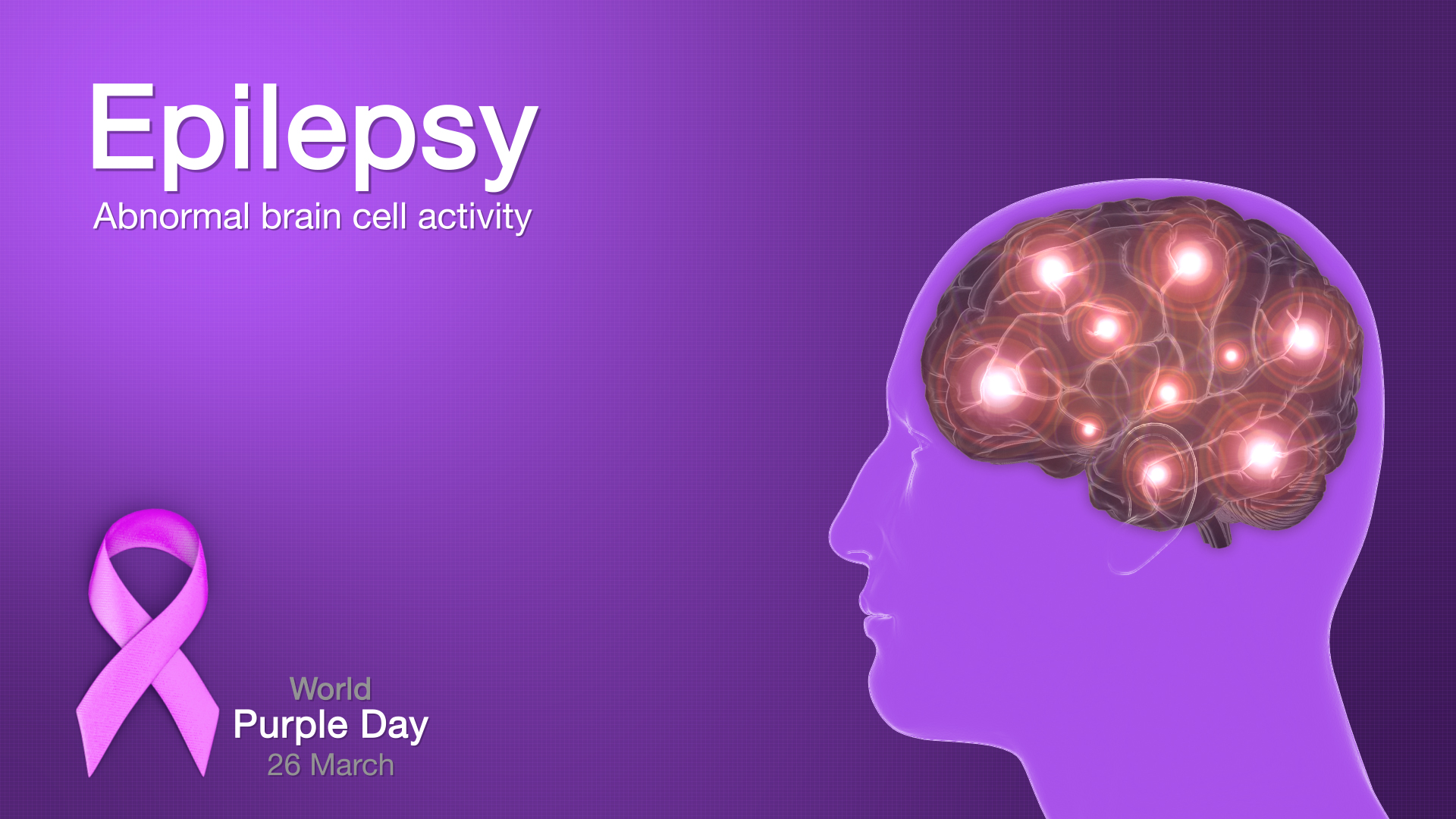Epilepsy is a neurological disorder in which the brain activity becomes abnormal. This abnormal activity of the brain causes seizures, unusual behaviour and sometimes even loss of awareness. Epilepsy causes unprovoked and recurrent seizures which are a sudden rush of electrical activity in the brain. Epilepsy can affect anyone, men, women and people of all ages, races and backgrounds.
Symptoms
Seizures are the main symptoms of epilepsy. Symptoms vary from person to person. Some people may just stare blankly for a few seconds while others may experience a repeatedly twitching movement in their arms or legs. Usually at least a couple of seizures are required for the condition to be diagnosed as epilepsy. Since epilepsy is caused by abnormal activity in the brain, it affects any process that the brain controls. The most common signs and symptoms of epilepsy are :
- Loss of awareness or consciousness
- Temporary confusion
- Staring blankly
- Jerking movements in the arms or legs which are uncontrollable
- Fear and anxiety
In most cases, a person suffering from epilepsy experiences the same type of seizures so the symptoms are the same every time.
Seizures are classified into two broad categories, focal seizures, and generalised seizures.
Focal seizures
Focal or partial seizures occur when abnormal activity takes place in only a part of the brain. The various types of focal seizures are :
- Focal aware seizures in which a person is awake and can respond to others.
- Focal impaired seizures in which the person is not fully aware.
- Focal motor seizures which cause the body to jerk or twitch or move in other ways.
- Focal non-motor seizures that affect how a person thinks or feels.
Generalised seizures
Generalised seizures are those that affect all the areas of the brain. The various types of generalised seizures are :
- Absence seizures which cause a person to stare blankly and may cause a person to lose awareness for a short period of time.
- Tonic seizures which cause the muscles to stiffen.
- Atonic seizures that cause the loss of muscle control and may cause a person to fall suddenly.
- Clonic seizures that cause repeatedly jerking movements in the muscles of the face, neck, and arms.
- Myoclonic seizures that cause quick twitching of the arms and legs.
- Tonic-clonic seizures which are the most intense type of seizures and can cause loss of consciousness, stiffening of the body, shaking, and loss of bladder control.
Causes
In most of the cases of epilepsy, there is no identifiable cause for it. But there are conditions that affect the brain increase the chances of getting epilepsy. These conditions are :
- Stroke and blood vessel diseases
- Severe head injuries
- Tumors
- Infections in the brain
- Genetics
- Lack of oxygen to the brain
- Prenatal injury
- Changes in brain structure
Treatment
For most people, epilepsy can usually be managed through medications, devices, surgery, and diet. Some people may get seizure-free by taking anti-seizure or anti-epileptic medicines. In some cases, a vagus nerve stimulator may be surgically placed under the skin on the chest and electrically stimulates the nerves running through the neck to help prevent seizures. Ketogenic diet may also help in reducing seizures. When other options fail to reduce seizures or seizures may be caused due to a tumor or stroke, surgery may be done in some cases to remove the part of the brain where the seizures are taking place
Epilepsy is a chronic disorder and can affect many aspects of a person’s life but getting diagnosed and starting treatment early can often really help a person to successfully manage the condition and improve the quality of life.
Disclaimer: The information in no way constitutes, or should be construed as medical advice. Nor is the above article an endorsement of any research findings discussed in the article an endorsement for any of the source publications.









